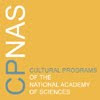to return to the main page go to www.visualcultureandbioscience.org
session one
From: M.I.D. van Rijsingen,
Date: Mon, 5 Mar 2007 15:30:58 +0100
Hello to all from Amsterdam!
I will just begin to say something about the first two questions. Try to gather my thoughts a bit.
1) ´Picturing practices´ in my discipline (art history) is, as you probably know, ´core business´. The question what role it plays in knowledge production however is blurred in the course of its 200 year historiography. Art Historians have talked about the image (and about image production) as a source of knowledge. But asking what kind of knowledge, you will get very different answers. I tend to think that this is sometimes not very different from how scientists talk about their images. However, the new generations of art historians are much more into the image and image production as a productive signification practice, considering the image not as a source of (some hidden) knowledge, but as a productive force. And with it the discipline becomes much more a discipline of knowledge production. Or let me say, it takes itself much more seriously. This ´turn´ (linguistic turned iconic) was in itself a boundary project without which we still would be blurred.
For me this turn meant also a new opening to the perceptual side of things, specifically the embodied-ness of perception.
2) My research projects have always been around the body, and representations of the body. I moved from semiotics to phenomenology (and back). Current dialogues, but specifically current (art) works, have focussed my view much more (and again) on the problems of the embodied ´reading´ of ´visuals´ (not only images, but also objects, installations etc.) and the ways in which it produces knowledge.
For example, it/they brought new musings on (conceptualisations of) the real, so easily used in texts and conversations. In the art-sci arena, the real is framed from both fields. In many artworks – I find – it is this framing that could produce knowledge, in that it makes us edgy ´readers´.
I hope I am not too thick here. Will elaborate later on probably, if required. Looking forward to reading more.
Best,
Miriam
Dr. Miriam van Rijsingen
Dept. of Art History, University of Amsterdam
to comment on this post, click on "comments" below
to return to main page go to www.visualcultureandbioscience.org
Subscribe to:
Post Comments (Atom)

No comments:
Post a Comment